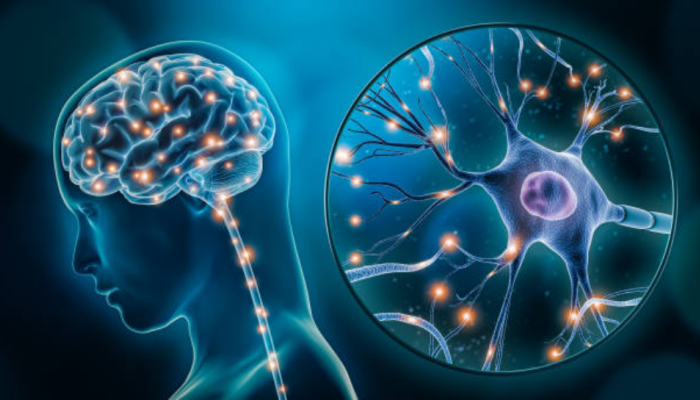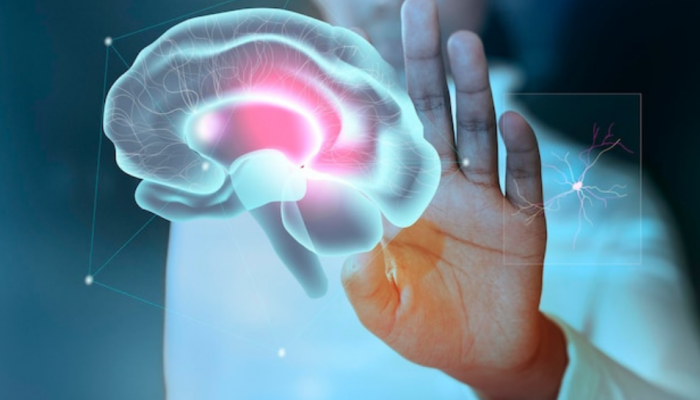Brain News
Swedish researchers have just uncovered mind-blowing evidence that your brain continues to grow new memory cells well into old age, offering new hope for tackling memory loss and cognitive decline.
Diet and lifestyle choices have a big impact on memory. As a result, establishing good habits can eventually maintain and even enhance memory.
This yearly event, which includes people of all ages, races and genders, focuses on brain health education to enhance equity for those with brain disorders.
Study reveals that climate change events may change brain structure, function, and overall health, while calling for more research to evaluate how this may explain changes in well-being and behaviour.
Researchers found that electrical noise stimulation over the frontal part of the brain improved the mathematical ability of people whose brain was less excited.
The study found that neurodevelopmental delays correlated with the amount of dietary fibre expectant mothers did.
The study reveals people with the lowest amount of social contact had overall brain volume that was significantly lower than those with the most social contact.
The study reveals children who grow up in poverty have a higher risk of obesity and score lower on tests of cognitive function than their peers in higher income neighborhoods and households.
The study reveals that the neuronal pathways that stimulate AgRP neurons send increased signals during a diet.
According to an exploratory study, those who consume more foods high in omega-3 fatty acids in midlife may have higher cognitive abilities and even better brain structure than those who consume less of these foods.
The research is published in Neurology, the medical journal of the American Academy of Neurology, on October 5, 2022, online. Fish including salmon, sardines, lake trout, and albacore tuna contain omega-3 fatty acids. They can also be found in supplements or foodstuffs that have been fatty acid-fortified.
Living species, whether fish or humans, tend to perform worse as the temperature rises.
This is something that many people have certainly experienced on a very hot summer day. But what occurs inside the body when the temperature rises too high?
American supermodel Hailey Bieber recently got briefly hospitalized and was treated for a blood clot after experiencing symptoms similar to that of a stroke.
Several billion nerve cells communicate with each other in the body so that humans and other living beings can perceive and react to their environment.
Cross-linking mass spectrometry helps identify the interaction sites of the proteins.
Women's brains are about 11 per cent smaller than men's, in proportion to their body size. Smaller brains allow certain features.
Recently, a study conducted by scientists on mice revealed to them the action of serotonin in individually promoting patience in the specific areas of the brain.
Researchers in Japan found that the mice became more patient in waiting for food when the hormone was artificially triggered in them during the lab experiment.
"Serotonin is one of the most famous neuromodulators of behavior, helping to regulate mood, sleep-wake cycles and appetite," the author said.
In the study, published in the journal Social Cognitive and Affective Neuroscience, 39 pairs of participants had a conversation with each other while wearing headsets that tracked brain activity.
Researchers found that among pairs of people who had very different socioeconomic backgrounds - calculated according to education level and family income - there was a higher level of activity in an area of the frontal lobe called the left dorsolateral prefrontal cortex.
In a questionnaire following their task, participants paired with people of different backgrounds reported a slightly higher level of anxiety and effort during their conversation than those in similar-background pairs.
The study was published in the Journal of Neuroscience.
The researchers focused on the area of the brain called hippocampus, which plays an important role in learning and social interactions; and synapses, which are specialized contacts between neurons.
"We found the changes in the E/I balance are regulated by astrocytes in the developing brain through the ephrin protein," said Iryna Ethell, a professor of biomedical sciences in the UCR School of Medicine who led the mouse study.
Publishing their work in the Proceedings of the National Academy of Sciences (PNAS), the researchers show that brain regions with high neural flexibility appear consistent with the core brain regions that support cognitive flexibility processing in adults, whereas brain regions governing basic brain functions, such as motor skills, exhibit lower neural flexibility in adults, demonstrating the emergence of functionally flexible brains during early infancy.
The research found that neural flexibility increased with age across the whole brain, and specifically in brain regions that control movement, potentially enabling infants to learn new motor skills.
The study was published in the Journal of Alzheimer`s Disease.
One of the largest studies linking obesity with brain dysfunction, scientists analysed over 35,000 functional neuroimaging scans using single-photon emission computerised tomography (SPECT) from more than 17,000 individuals to measure blood flow and brain activity.
Loading...



)
)
)
)
)
)
)
)
)
)
)
)
)
)
)
)
)
)
)
)
)
)
)
)
)
)
)
)
)
)
